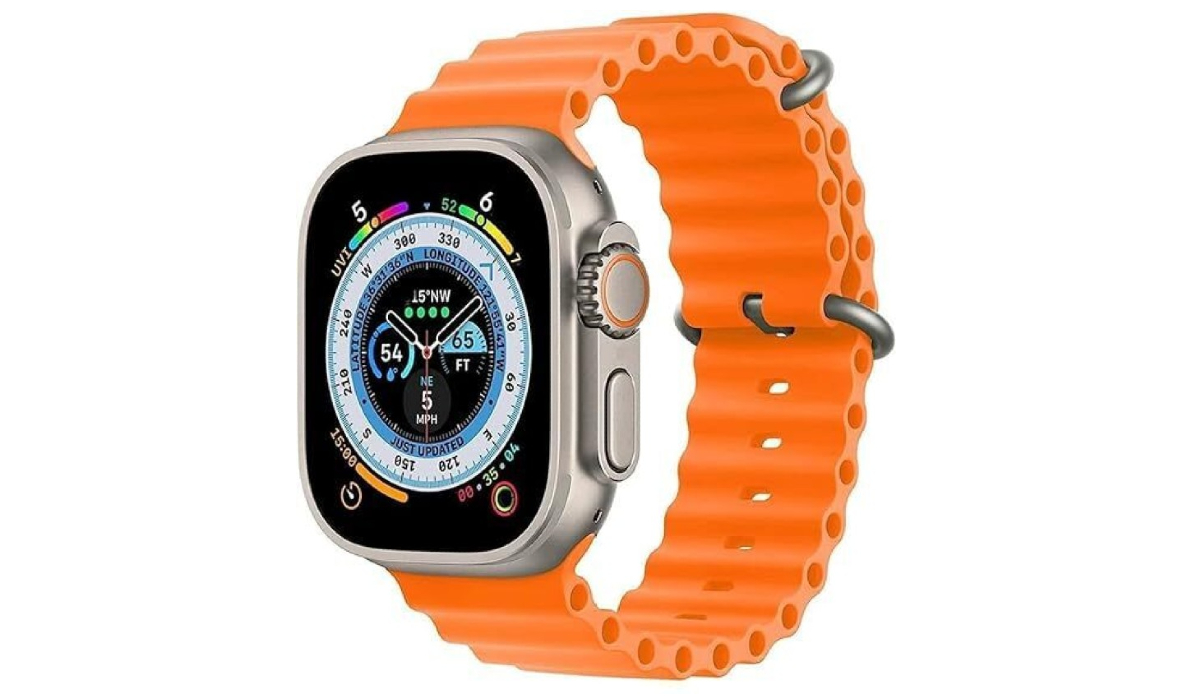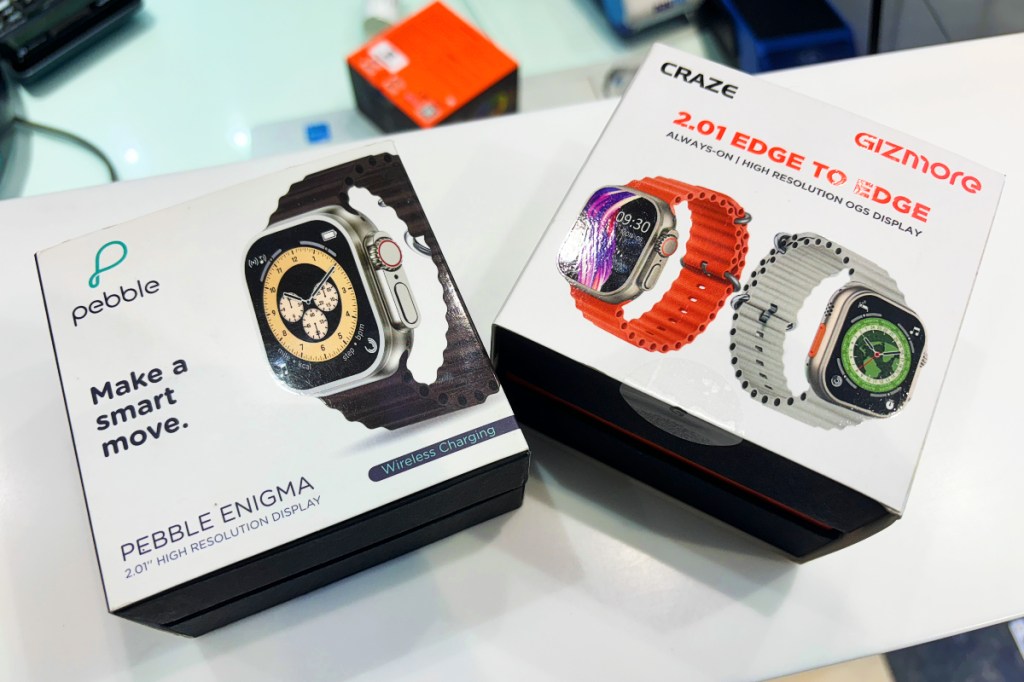India’s smartwatch market has transformed, seemingly overnight. For years, it has been dominated by its homegrown players, while global giants like Apple and Samsung have struggled for presence, amid the hundreds of millions of annual shipments. Suddenly, however, the category has been flooded with unknown brands, which have no prior and significant existence. These have started gaining customer focus and are expected to eventually push the market toward a consolidation stage.
Domestic brands like Fire-Boltt, Noise and boAt have dominated the category, making up more than 60% of the total market. Apple and Samsung, on the other hand, fell from 4.5% to a little over 2% share combined, with 1.1 million units shipped in 2023, according to market intelligence firm IDC.
Meanwhile, new entrants have seen a surge in their market share from three to 3-5% in 2020 to 15-20% last year. Vikas Sharma, senior market analyst for wearable devices, IDC, told TechCrunch that the category now accounts for 134.2 million units annually.
These brands sometimes carry an unrecognized name or are knockoffs of established products. Many are direct copies of big global brands like Apple and Samsung, priced at less than $12 (1,000 Indian rupees). The Apple Watch price in India starts at $360 (29,900 Indian rupees) for the Apple Watch SE, while the Samsung Galaxy Watch 4 retails at $290 (23,999 Indian rupees). The Indian smartwatches from brands such as Fire-Boltt, boAt and Noise start from $12.

Unlike the more expensive models, off-brand products generally have no warranties. In some cases, the retailer offers customers a replacement guarantee, but that is, too, not provided by the manufacturer and given merely on a piece of paper or even verbally. Fitness tracking metrics are often inaccurate due to inferior selection of sensors to save costs, while the hardware/software combo leaves much to be desired. Nevertheless, the accuracy — even on the smartwatches offered by established Indian players — sometimes does not match that of the Apple Watch or Samsung Galaxy Watch, as these vendors compromise on sensor quality to maintain affordability.
“The accuracy of the sensors is not good enough [across most affordable smartwatches] to provide the same level of user experience, which users get in a premium model,” Counterpoint’s senior research analyst Anshika Jain told TechCrunch.
Sharma pointed out the aesthetics, which make these unknown branded models resemble the Apple Watch and Apple Watch Ultra or some high-end rounded smartwatches, as well as affordability, help them gain customer attention.
Hong Kong-based market analyst firm Counterpoint Research has observed the number of unknown brands in the Indian smartwatch market has grown from 78 in 2021 to 128 in 2023.
“There has been almost 80-90% growth in the number of unknown brands,” said Jain. “This clearly indicates how the market has become more crowded now.”
She noted the pattern the analyst firm has observed for the last couple of years: Most unknown brands emerge during the third quarter — around the time of the festive season in the country — and remain active for one or two quarters before disappearing completely. Additionally, these are likely white-label products imported from China at dirt-cheap prices or assembled by an Indian electronics manufacturing services partner, she said.
Declining prices
The growth of unknown brands in the Indian smartwatch market has not yet significantly impacted all the local firms dominating the market. However, the existing players are cautious. Some established local brands have started feeling the heat. Additionally, the growing market share of unknown brands has reduced the average selling price (ASP).
Sameer Mehta, co-founder and CEO of Warburg Pincus-backed boAt, told TechCrunch the decline in ASPs is as high as 90%.
“Overall volumes have started going down,” he said. “ASPs have declined by, say, 90%, which essentially does not fare well for any industry. Tell me one industry where the price erosion reaches 90% in just one year.”
Market analysts have also observed a massive dip in the ASP, though not as substantial a drop as Mehta mentioned.
Jain of Counterpoint, meanwhile, said the ASP dropped by around 39% to $36 in 2023 from $59 in 2022. “There’s a lot of froth at the bottom, which is just bringing in devices and putting it out in the market. Once that goes away, there will be some sanctity. Everybody will stop investing in the business if nobody is making money in the business.”
boAt, India’s third-leading smartwatch brand, saw a 17% decline in year-on-year growth in the fourth quarter, per IDC. The smartwatch business contributes about 20% of the startup’s revenues.

Mehta said despite seeing some impact from the unrecognized brands, boAt would continue to generate 15-20% of revenues from smartwatches in the next couple of years.
Unlike boAt, Fire-Boltt and Noise (the top two brands), saw year-on-year growth in the same quarter.
Gaurav Khatri, co-founder of Bose-backed Noise, told TechCrunch the startup did not see any notable impact from the “constant influx of new entrants and brands.”
Moves to retain the market
Market experts believe the ongoing shift with unknown brands expanding their presence will affect all key players — unless the dominants change their strategy and add more value to their future smartwatches.
Currently, market incumbents primarily target first-time buyers — similar to unknown brands. Instead, analysts believe that established brands should target existing customers.
“People are not opting for these [established Indian branded] smartwatches for their next purchase with the same level of enthusiasm for the first purchase… the main reason is obviously the customer experience and user interface of these devices, which is not that smooth,” said Counterpoint’s Jain.
Most established Indian players do not focus on bringing distinctive valuable features to smartwatches, unlike their big-tech counterparts including Apple and Samsung. Smartwatch makers in the country also sometimes use the same Chinese original design manufacturers [ODMs], limiting product differentiation. Many of these models even bear an uncanny resemblance to Apple and Samsung. However, Indian brands claim to develop printed circuit boards locally, and design software experiences in-house, distinguishing themselves from global players. Local assembling essentially helps manufacturers avoid import duties that are 20%.
Last year, smartwatch brands boAt and Noise entered the smart ring market in India to diversify their product catalog. However, the smart ring market in India, which saw more than 100,000 shipments in 2023, is led by Ultrahuman, with a share of 43.1% in Q4, per IDC.
Mehta of boAt told TechCrunch the startup is looking to focus on creating different categories in the smartwatch market, such as new models aimed at kids and the elderly, sports and wellness, to retain its presence. Similarly, it is looking to design its new smartwatches for second- or third-time buyers, who are more aware of their health and wellness and look for better-quality devices. Nonetheless, these changes will increase the pricing of boAt smartwatches.
That said, market analysts like IDC’s Sharma predicts the Indian smartwatch market will see only single-digit growth this year due to stiff competition from unknown brands and dropping ASPs. The market used to see over 150% year-on-year growth in the previous years.
Sharma also believes that the smartwatch market may consolidate in the coming couple of years, and fewer players would be left.
“There will be a flatline coming in the next two years… it all picked up after COVID, and now it’s gone to a sky level… we’ll soon see a saturation point,” he said.































Comment